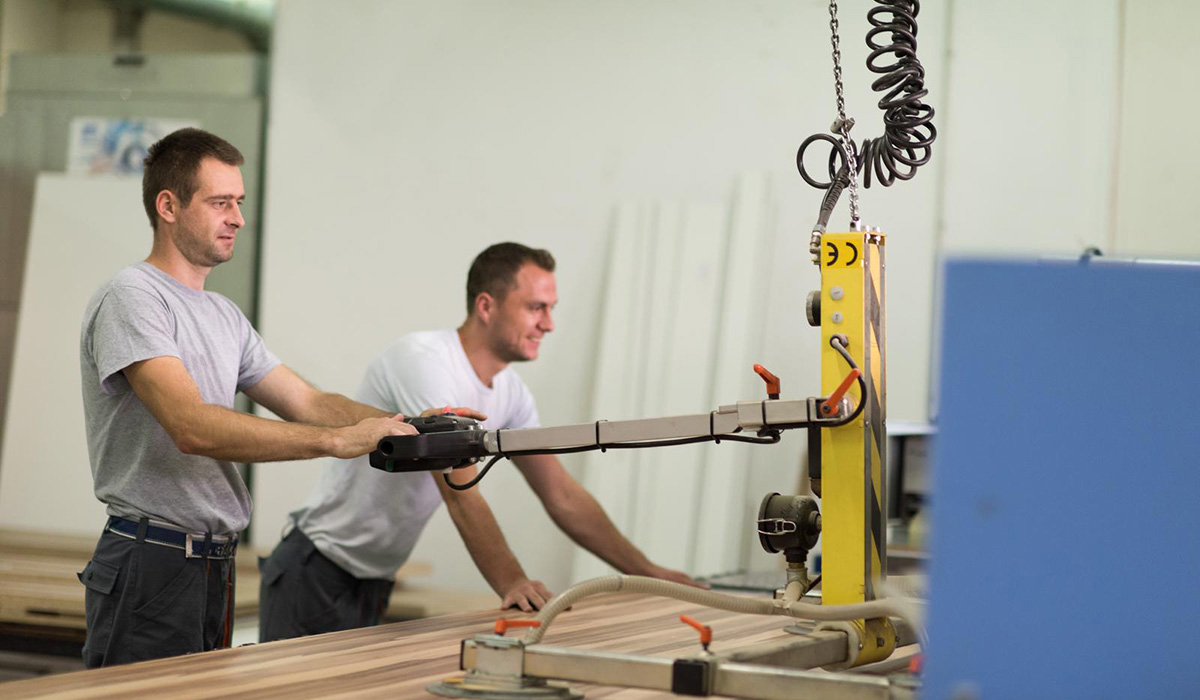
South Carolina Workers’ Compensation for Factory Workers
Understand your rights to compensation after an on-the-job injury or illness in Columbia and surrounding South Carolina communities
With a revenue of $40 billion per year, manufacturing is the single biggest industry in South Carolina. In fact, South Carolina is one of the top states for manufacturing; it’s rivaled only by North Carolina. Currently, more than 12% of its total workforce is employed in the manufacturing industry.
While a robust manufacturing industry is great for the South Carolina economy and workers alike, these jobs also put these workers at risk for certain occupational illnesses and injuries.
Fortunately, most South Carolina workers qualify for workers’ compensation benefits that cover medical expenses and lost wages when an on-the-job injury or illness prevents them from working.
Common types of jobs in factories
The first thing to know about factory jobs is that there’s a wide variety of them, and they all come with their own risks.
Here are a few of the industries associated with manufacturing:
- Metal and machinery
- Textiles
- Coal, petroleum and chemicals
- Plastics and rubbers
- Transportation
- Computers and electronics
- Wood, paper and printing
These are just a few of the jobs that you’ll find in factories, plants, mills and other manufacturing sites in South Carolina:
- Assemblers
- Fabricators
- Machinists
- Typesetters
- Electroplaters
- Welders
- Solderers
- Technicians
Common causes of accidents in factories
There are many occupational hazards in the manufacturing industry, and depending on their severity, they can result in everything from minor wounds to long-term illnesses and disabilities. The worst industrial accidents are fatal.
Causes of factory accidents can vary depending on the industry but may include the following:
- Misused or poorly functioning machinery
- Exposure to harmful chemicals
- Falling objects
- Cluttered floor spaces
- Collisions with forklifts and other vehicles
- Poor lighting
- Defective tools
- Lack of safety guards and equipment
- Overexertion
Common factory injuries
Between machines, tools, appliances, chemicals and crowded assembly lines of people, a factory floor can be an extremely busy place to work. It’s easy to see how such an environment can lead to workplace injury.
Here are just a few of the most common injuries to factory employees:
- Thoracic outlet syndrome
- Crush injuries
- Traumatic brain injuries
- Spinal cord injuries
- Burns and scalds
- Repetitive motion injuries (like carpal tunnel syndrome)
- Electrocution injuries
- Loss of fingers or limbs
- Broken bones
- Hearing loss
- Sprains and strains
Factory jobs can also lead to health problems that don’t stem from accidents but from the inherent nature of the work. For example, an employee might develop tinnitus from loud machines or respiratory problems from long-term exposure to certain chemicals.
In the news:
South Carolina recycling plant fined for workplace violations
In 2022, Industrial Recovery and Recycling, Inc., which is located in Greer, South Carolina, was fined $34,000 after an employee died on the job. He’d been working the night shift when he fell into an industrial shredder.
An investigation revealed that the recycling plant was guilty of numerous safety violations, including a lack of guardrails around the shredder and inadequate training for employees who worked with the shredder. The Occupational Safety and Health Administration (OSHA) listed a dozen safety violations in all.
The employee’s father is suing.
Tips for staying safe while working in manufacturing
While the ultimate safety of a factory worker’s job largely depends on their employer and the steps that they take to prevent industrial accidents, workers can do their part, too. Consider these tips for workplace safety in the manufacturing industry:
- Take your training seriously
- Always wear the appropriate protective gear
- Avoid jewelry and loose clothing that could get stuck in machinery
- Review and memorize your factory’s emergency plans
- Report broken or defective machinery to your supervisor immediately
- Stay aware of your surroundings at all times
An overview of workers’ compensation in South Carolina
Workers’ compensation is a type of insurance meant for people who have been injured on the job. Each state has its own guidelines for it.
In South Carolina, there are 2 important things to know about workers’ comp:
- It’s “no-fault” insurance, meaning that no one has to be liable for your injury. In other words, you don’t have to prove that your workplace was negligent in order to file a claim. You only need to prove that your injury or illness occurred while you were performing your job duties or because of your work environment.
- Workers’ comp is considered an “exclusive remedy” for your injury, meaning that you can’t sue your workplace after you’ve received it.
There can be exceptions to these rules. It’s always best to consult an experienced workers’ compensation attorney who can help you understand your rights after a work injury or illness.
Workers not covered under South Carolina workers’ comp
Most companies with 4 or more employees (part or full-time) are required to have workers’ compensation insurance, and similarly, most employees are covered by it. But there are a few exceptions:
- Casual employees who don’t work regular hours
- Employees of companies with less than $3,000 in payroll
- Railway and agricultural employees
If any of these exceptions might apply to you, talk to a workers’ comp attorney, and see if you’re eligible for workers’ comp benefits.
Types of workers’ compensation benefits
Depending on the severity of the accident, factory workers and their families might be entitled to a range of benefits from workers’ comp, including:
- Medical expenses. These benefits cover all necessary medical procedures, supplies and equipment, including medication, surgeries and rehabilitation.
- Lost wages/income replacement. Workers are typically entitled to two-thirds of their average weekly wages if a work injury or illness prevents them from working.
- Death benefits. These benefits are provided to family members of a worker who dies from an on-the-job injury or illness and cover funeral expenses and lost income.
How to file a workers’ compensation claim in South Carolina
Filing for workers’ comp is a relatively straightforward process:
- Seek medical attention. This will prevent your injuries from getting worse and provide medical documentation linking them to a work accident.
- Report your injury to your workplace. This must be done within 90 days or you will likely be ineligible for workers’ comp benefits.
- Wait for your employer to file a claim with their insurance company by submitting Form 50.
- Contact a workers’ compensation attorney right away if your employer refuses to file the claim or your claim is denied.
The tricky parts will come from the complex rules, policies, and procedures that govern workers’ compensation. For example, except for emergencies, you have to seek medical treatment from a physician in your employer’s insurance network, and you must strictly abide by all timelines. If you don’t know about these things in advance, they can alter, delay or even ruin your chance at compensation.
Do I need to hire a workers’ compensation attorney to help with my claim?
Generally speaking, it’s a good rule of thumb to have a lawyer at your side when dealing with legal matters. It can definitely be beneficial to have an attorney’s help when things are going poorly with your claim.
For example, if your employer is dragging their feet on submitting the right paperwork to the Workers’ Compensation Commission, a call from a lawyer can speed things up.
Additionally, if your injury or illness forces you to miss work for an extended period or results in a permanent disability that requires ongoing medical treatment, you’ll definitely want to discuss your case with an experienced workers’ compensation attorney to ensure your chance at fair compensation.
Unfortunately, insurance companies will typically offer low initial settlement amounts through a lump sum settlement. While the idea of a lump sum payment can be appealing, it’s often not enough to cover your ongoing medical treatment after a serious injury, and once you’ve accepted an offer, you can’t go back and request more money later if you realize your injury is more extensive than you originally thought.
In these situations, an attorney can give you an idea of how much your claim should be worth based on similar cases. They can handle all negotiations with your employer and their insurance company, so you can rest assured you’ll get the best possible outcome for your case.
Get a free consultation with our Columbia workers’ compensation attorneys
If you’re a factory or manufacturing industry worker who’s been injured on the job, you know that the road to recovery can be long and difficult. At Smith, Born, Leventis, Taylor & Vega, we understand the unique challenges that injured workers in these industries face.
We also know that the physical demands of your job can be intense, and you need to be able to rely on your employer to provide a safe workplace. Unfortunately, accidents happen, and when they do, corporations and insurance companies can be quick to try to deny or minimize your claim.
That’s where we come in. Our Columbia workers’ compensation attorneys have a deep understanding of the manufacturing industry, and we know how to navigate the complex legal landscape to get you the compensation you deserve.
We’ll fight to ensure that you have the financial resources you need to recover from your injury and provide for yourself and your family. Contact us today to schedule a free consultation and learn more about how we can help you get the justice you deserve.
